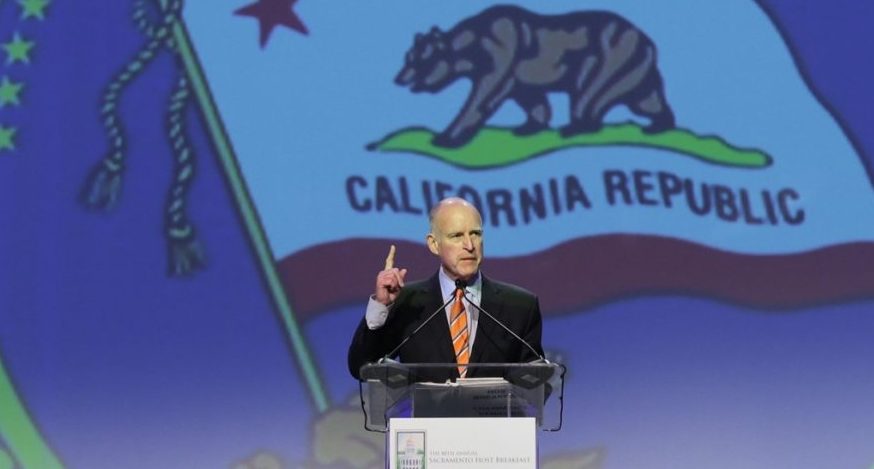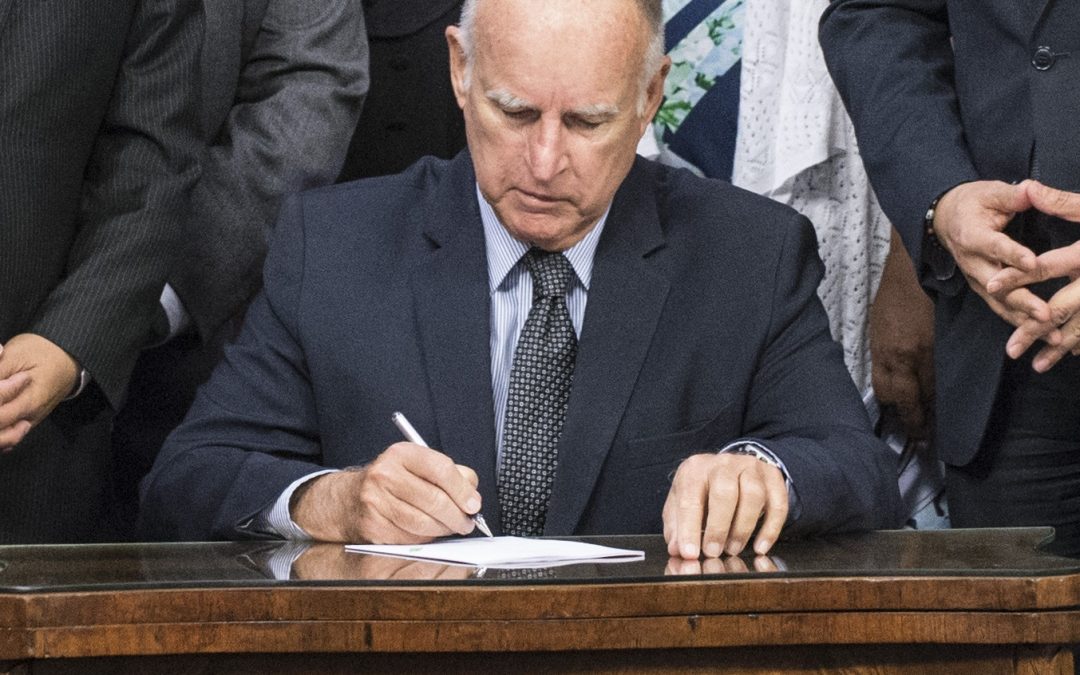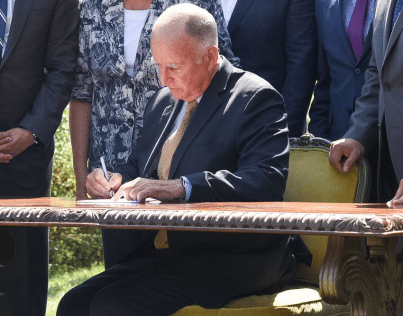
Senator Connie Leyva (center), Assembyman David Chiu (right) and others Advocate for the Passage of SB 1449 and AB 3118 Earlier this year.
Leyva Determined to Bring Back two Bills Vetoed by Brown
Optimistic about Newsom’s Signature
By Sean Brown, December 11, 2018 1:05 pm
After making a commitment to reintroduce two of her key legislative proposals that were vetoed by Governor Jerry Brown in last year’s legislative session, Senator Connie Leyva (D-Chino) has affirmed her promises, unveiling SB 22, rape kit testing, and SB 24, college access to medication abortion.
SB 22 would ensure all new rape kits get tested in California by requiring law enforcement agencies and forensic laboratories to promptly analyze and test all newly collected rape kit evidence. Senator Leyva’s former bill, SB 1449, was rejected by Governor Brown based on fiscal reasons and instead, he signed AB 3118 authored by Assemblymember David Chiu (D-San Francisco) and co-authored by Senator Leyva. That bill, required each law enforcement agency, crime lab, medical facilities to conduct an audit of all untested rape kits in its possession and report findings to the Department of Justice.
In his veto message, Brown highlighted the inclusion of $7.5 million in the state budget to test rape kits and get through the existing backlog, adding that while he fully supported the Senator’s goal, he believed there should be time to complete the audit on the status of the backlog and “gauge the appropriate next steps and budget accordingly.”
In response to the veto, Senator Leyva said she was “angry and disappointed by the Governor’s decision” and was “as motivated now as ever to make sure that all newly collected rape kits are promptly tested in California.”
SB 22 is jointly sponsored by the Alameda County District Attorney Nancy O’Malley, Joyful Heart Foundation, and Natasha’s Justice Project. The Senator pointed out that her bill will follow federal best practices and “ensure survivors reporting sexual assault across California will have equal access to swift submission and analysis of forensic evidence associated with their cases. Under this legislation, newly collected rape kits must be submitted within 20 days and tested no later than 120 days after receipt, preventing the development of backlogs of rape kits in evidence rooms or laboratories. Promptly testing DNA evidence in rape kits can identify an unknown assailant, link crimes together, identify serial perpetrators, and exonerate the wrongfully convicted.”
After no “no” votes on her prior legislation, the Senator said she believes she will have the same unanimous support on SB 22, but more importantly expressed hope in the new Administration counting on Governor-Elect Gavin Newsom seeing “the urgency of this legislation so that new rape kits are not sitting on a shelf or warehouse somewhere while rapists continue to walk our streets.”
SB 24, jointly sponsored by the Women’s Foundation of California, ACCESS Women’s Health Justice, ACLU California, and other groups, would enact the “College Student Right to Access Act” to ensure that college students receive access to medication abortion services on California public university campuses. Specifically, SB 24 will require public universities with on-campus student health centers to provide medication abortion on campus by January 1, 2023. In reintroducing her proposal, Leyva highlighted what she sees as a national threat on reproductive rights noting “As critical health care protections and services for women are under attack at the federal level and in several states across our country, California continues to lead the way by strengthening access to safe and timely reproductive health care”.
Senator Leyva’s bill from last session, SB 320, was also rejected by Governor Brown who thought the measure was “not necessary” stating in his veto message that “access to reproductive health services, including abortion, is a long-protected right in California.” Using data from the sponsors of the bill and citing it against them, the Governor added, “the average distance to abortion providers in campus communities varies from five to seven miles, not an unreasonable distance.”
Still, whether you agree with the bills or not, Leyva said that her proposal reaffirms the constitutional right of college students to access abortion care promptly and without delay and expressed hope that the new Administration will concur. Furthermore, the issues aren’t going away anytime soon.
Both proposals will be considered in policy committees sometime in the early Spring.
- McCarthy Signals That He’d Support Border Barrier Other than Wall - February 6, 2019
- DCCC Adds Nunes to Its Early Target List - February 6, 2019
- Gavin Newsom Places Ads in Key 2020 States - January 24, 2019




